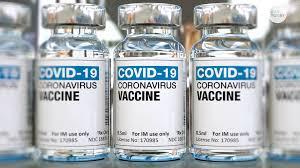Debunking misinformation about the COVID-19 vaccine

Because of the severity and length of the COVID-19 pandemic and the global roll-out of the vaccine, there is a lot of information circulating in the news and around the internet about the safety, effectiveness, and science behind the vaccine. Unfortunately, there is also a lot of misinformation out there as well, and that can hinder people from making informed medical decisions. While we wait for the vaccine to become more widely available, Ames Laboratory Occupational Medicine would like to tackle some of the more widely shared pieces of misinformation, and set the record straight.
Myth: COVID-19 vaccines are not safe because they were developed and tested quickly.
Fact: Many pharmaceutical companies have invested significant resources into developing COVID-19 vaccines quickly because of the worldwide effects of the pandemic. This emergency situation warranted an emergency response. That does not mean the companies bypassed safety protocols or performed inadequate testing. Severe acute respiratory syndrome (SARS) and Middle East respiratory syndrome (MERS) are two diseases caused by coronaviruses that are closely related to the virus that causes COVID-19. Researchers began working on developing vaccines for these diseases after they were discovered in 2003 and 2012, respectively. Lessons learned from this earlier vaccine research have been used to inform strategies for developing a COVID-19 vaccine.
Myth: I already had COVID-19 and I have recovered, so I don't need to get vaccinated for COVID-19.
Fact: There is not enough information currently available to say if or for how long after infection someone is protected from getting COVID-19 again. This is called natural immunity. Early evidence suggests natural immunity from COVID-19 may not last long, but more studies are needed to better understand this. Occupational Medicine recommends getting the COVID-19 vaccine even if you’ve had COVID-19 previously. However, anyone currently infected with COVID-19 should wait to get vaccinated until one month after their diagnosis.
Myth: I won't need to wear a mask after I get vaccinated for COVID-19.
Fact: It may take time for everyone who wants a COVID-19 vaccination to get one. Until more people are vaccinated, and more is understood about how well the vaccine works, continuing with precautions such as wearing a mask, practicing physical distancing and washing hands frequently, will be important.
Myth: More people will die as a result of a negative side effect to the COVID-19 vaccine than would die from the virus.
Fact: A claim circulating on social media is that the COVID-19 mortality rate is 1%–2% and that people should not be vaccinated against a virus with a high survival rate. However, a 1% mortality rate is 10 times more lethal than the seasonal flu. In addition, the mortality rate can vary widely based on age, sex and underlying health conditions.
While some people who receive the vaccine may develop symptoms as their immune system responds, this is common when receiving any vaccine, and these symptoms are not considered serious or life-threatening. You cannot become infected with COVID-19 from COVID-19 vaccines. These are inactivated vaccines, not live-virus vaccines.
It's important to recognize that getting vaccinated for COVID-19 is not just about survival from COVID-19. It's about preventing spread of the virus to others and preventing infection that can lead to long-term negative health effects. While no vaccine is 100% effective, getting vaccinated is far better than not getting vaccinated. The benefits outweigh the risks in healthy people.
You can find more information regarding myths and facts about COVID-19 vaccinations from Mayo Clinic here, and from the U.S. Centers for Disease Control, here.
